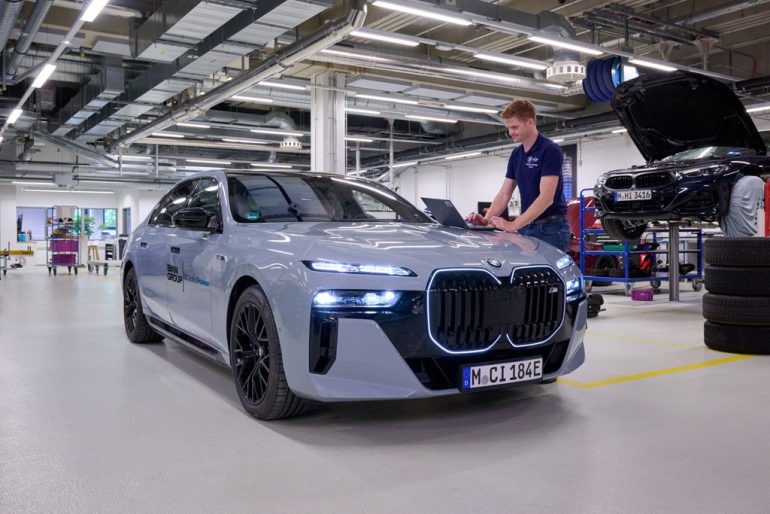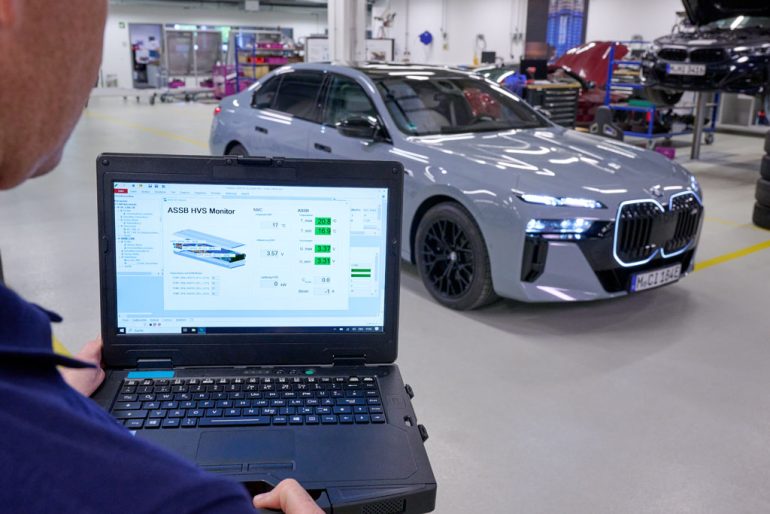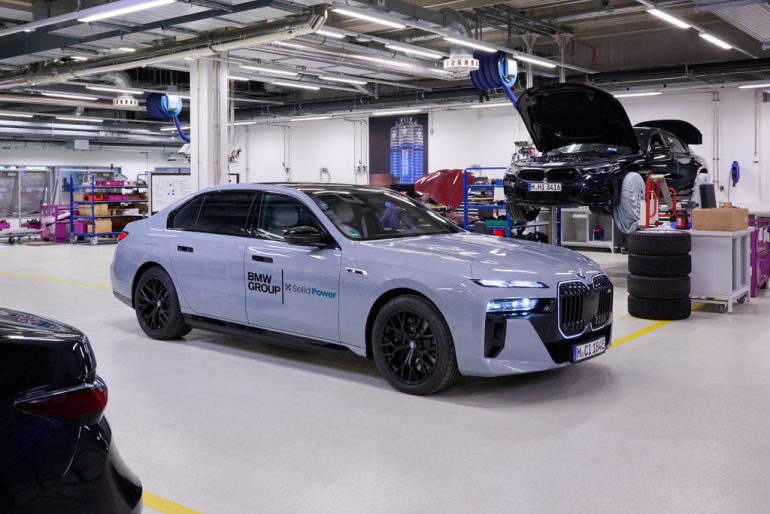Automotive

BMW is taking a major step toward the future of electric vehicle technology by beginning real-world testing of all-solid-state battery (ASSB) cells in a BMW i7 test vehicle. Developed in collaboration with Colorado-based Solid Power, this prototype marks the first time large-format solid-state cells have been integrated into a fully operational BMW vehicle and driven on public roads.
The testing, currently underway in the Munich area, represents a significant milestone in the BMW Group’s long-term strategy to bring next-generation battery technology to its EV lineup. Solid-state batteries have long been viewed as a potential game-changer in electric mobility, promising greater energy density, improved safety, and, eventually, lower production costs.

Unlike traditional lithium-ion batteries, which use liquid electrolytes, solid-state batteries rely on solid materials to move ions between the anode and cathode. This eliminates the risk of leakage or fire associated with liquid cells, while also allowing for a more compact and energy-dense package. For drivers, that could translate to longer range, quicker charging, and a more durable battery pack with fewer compromises.

BMW’s test vehicle uses ASSB cells based on sulfide-based electrolytes developed by Solid Power. These advanced cells are integrated into a concept battery pack that builds on the fifth-generation (Gen5) prismatic cell architecture already found in BMW’s current EVs. But it’s not just a plug-and-play swap. Engineers are using the i7 testbed to study how the solid-state modules behave under real-world conditions — from managing cell expansion to optimizing pressure and thermal conditions within the pack.
“This test vehicle is a perfect example of our technology-open approach,” said Martin Schuster, Vice President of Battery Cell and Cell Module at BMW. “We are constantly pushing the boundaries of what’s possible, and partnerships like the one we have with Solid Power are key to that progress.”

Solid Power CEO John Van Scoter also expressed enthusiasm for the breakthrough, stating, “We’re extremely proud that our partnership with BMW has resulted in the first demonstration of truly all-solid-state battery cells in a vehicle. We believe strongly in the promise of this technology.”

The collaboration between BMW and Solid Power is not new. The two companies have worked together since 2016 and formalized their partnership with a joint development agreement and a BMW investment in 2021. As part of their deepening cooperation, BMW will also operate a solid-state prototype cell production line at its Cell Manufacturing Competence Center (CMCC) in Parsdorf, Germany. The facility will use Solid Power’s materials and expertise under a research and development license to accelerate in-house knowledge and production capabilities.
For the BMW Group, this move is part of a broader effort to stay at the forefront of battery innovation. Since 2008, the company has been steadily investing in battery R&D, culminating in the Battery Cell Competence Center (BCCC) in Munich, which brings together research, design, and prototyping under one roof. Today, BMW works with more than 300 partners across the globe — from startups to universities — to ensure it remains connected to the latest breakthroughs in energy storage technology.

As the automotive industry races toward electrification, solid-state batteries are widely viewed as one of the most promising advancements on the horizon. Though still in the early stages of real-world implementation, BMW’s work with Solid Power could be a major step in bringing this high-potential technology closer to mass production. If successful, solid-state cells could lead to EVs that charge faster, drive farther, and last longer — all while using safer, more efficient battery designs.
This test program with the i7 may be a preview of what’s to come, and it puts BMW in a strong position to lead the next phase of electric vehicle evolution.
FOLLOW US TODAY:

